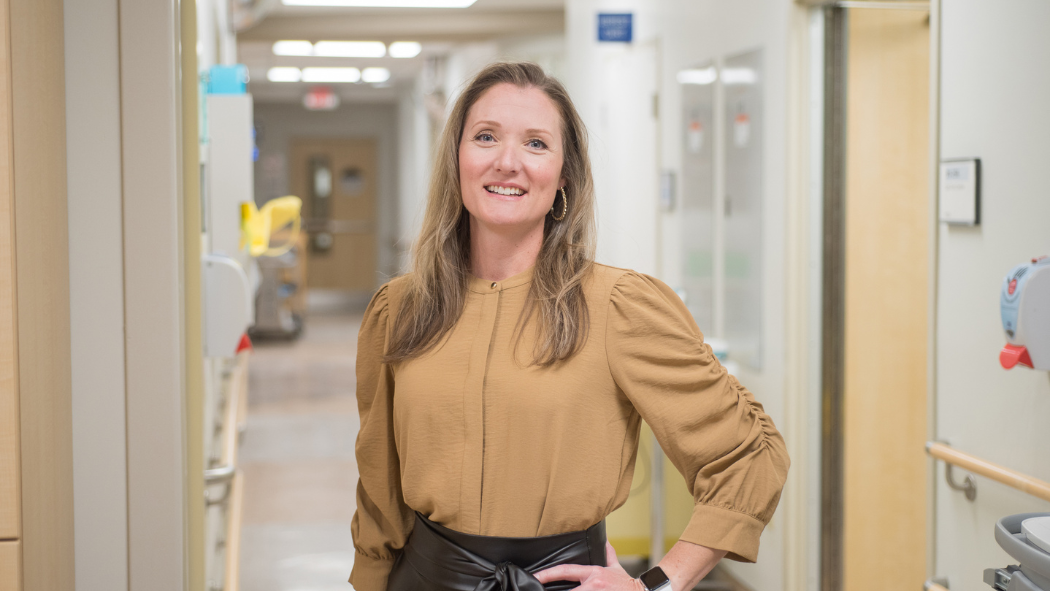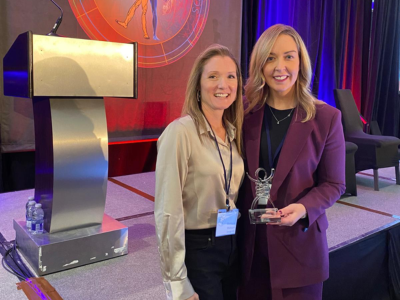
January 13, 2025
By Melanie Watson, Nurse Practitioner at LHSC
Role of nurse practitioners at London Health Sciences Centre
Amongst the daily operations at London Health Sciences Centre (LHSC), nurse practitioners (NP) have a dynamic and independent role within various departments. Each day involves collaborating with interdisciplinary teams to deliver the best care to patients, where they utilize advanced skills and their clinical expertise. This role not only enhances patient outcomes and safety but also contributes to professional education and research advancements.
Becoming a nurse practitioner
After receiving my Bachelor of Science (Honours Biology) from Western University, I transitioned to nursing and was accepted into the accelerated nursing program at the University of Toronto. Following graduation, I returned to London as an inpatient nurse at Children’s Hospital at LHSC. After gaining this experience, I pursued further education and became a paediatric Nurse Practitioner, earning a Master of Nursing and Nurse Practitioner in Paediatrics from the University of Toronto in 2013.
Growing up, my mom worked in various roles in health care, giving me early insight into the complexities of the field and the positive impact quality health-care teams can have on patients and families during challenging times. I was fascinated by science and had learned strong interpersonal skills from my part time employment during school in customer service. One summer as a lab student solidified my decision, as I realized that, while I loved science, I thrived in roles involving meaningful interactions with people.
I wanted a career that offered growth and challenges, which led me to nursing. The versatility of the profession and the ability to make a meaningful impact on people drew me in. While working as a paediatric inpatient nurse, I saw firsthand the difference Nurse Practitioners make in patient outcomes, which inspired me to pursue further education and expand my role in patient care, scholarly practice and managing chronic conditions like pediatric inflammatory bowel disease (IBD).
Continuing education, skills and opportunities
I began my career at LHSC in 2005 as a paediatric inpatient nurse, becoming a Nurse Practitioner in Paediatric Gastroenterology and Hepatology in 2013. I also served as Project Lead for the Ambulatory Department Redesign at Children’s Hospital (2019-2020) and currently hold academic roles at the University of Toronto and Western University. With an 80/20 split at LHSC, I dedicate 80 per cent of my time to clinical work and 20 per cent to scholarly activities, including research, quality improvement, mentorship, and participation in national and international committees – all aimed at enhancing patient care.

Melanie Watson (L) pictured with Dr. Eileen Crowley (R) who received the Rising Star Award.
Working with children with chronic illnesses emphasized the need for comprehensive, continuous care. The Nurse Practitioner role allows me to expand my practice, increase autonomy, and make a meaningful impact on patients' lives, while also engaging in research. Having the ability to treat and participate in patient care management also promotes the efficient use of health-care resources.
LHSC’s commitment to professional development, supported by mentors and colleagues, has truly fostered my growth throughout my career. Continuous professional development is essential, and I attend conferences, workshops and stay updated with the latest research and guidelines in pediatric IBD management. Our collaborative team participates in training, case discussions, and initiatives like the #GETSET transition clinic, NP-led clinic, combined liver-IBD clinic, and virtual medicine for remote monitoring. These efforts, along with our focus on personalized medicine and genetics, help improve patient outcomes and position LHSC as a leader in pediatric IBD care.
Daily impact on lives
As a Paediatric IBD Nurse Practitioner, I play a critical role in managing chronic health conditions, improving children's quality of life and reducing hospitalizations and ER visits.
By providing comprehensive and individualized care, I help young patients, and their families better understand and manage their condition, which leads to improved health outcomes and a positive impact on the use of health care resources. I find it rewarding to build long-term relationships with my young patients and love seeing the positive changes in their health and lives over time.
The Nurse Practitioner role offers autonomy, allowing me to provide the latest medical treatments and innovations in IBD therapy. Each child is unique, and their response to treatment can vary widely. Managing paediatric IBD is challenging, but staying current with research, collaborating with a multidisciplinary team and tailoring care plans to each child’s needs helps me support families on their journey with this lifelong condition.
Are you interested in growing your career at LHSC? Check out current opportunities online or connect with the Recruitment Team recruitment@lhsc.on.ca to learn more.
